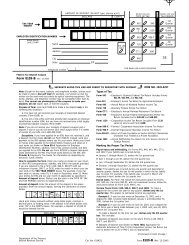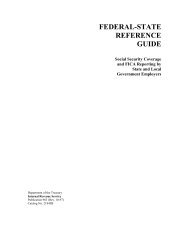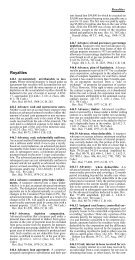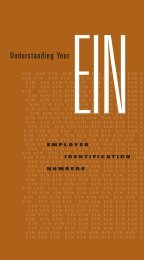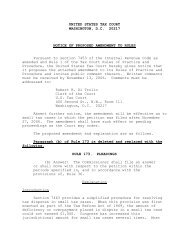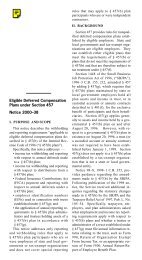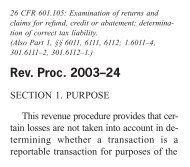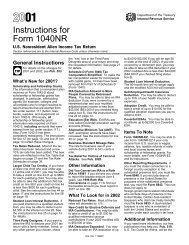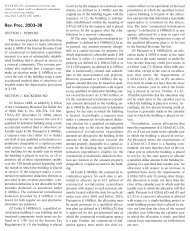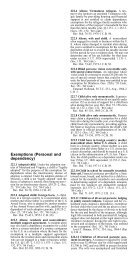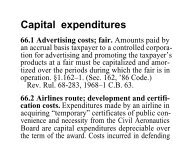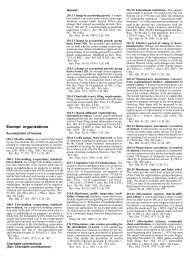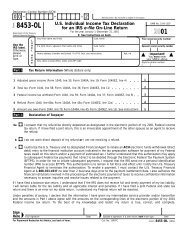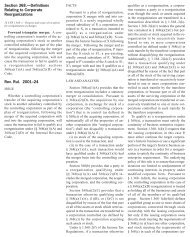Auto Dealerships - Audit Technique Guide - Uncle Fed's Tax*Board
Auto Dealerships - Audit Technique Guide - Uncle Fed's Tax*Board
Auto Dealerships - Audit Technique Guide - Uncle Fed's Tax*Board
Create successful ePaper yourself
Turn your PDF publications into a flip-book with our unique Google optimized e-Paper software.
general economic conditions, but must be attributed to the efforts of the employees * * *" in<br />
particular its shareholders. Much of their success is due to their development and<br />
implementation of the program to increase fleet sales. The court went on to state that "* * *<br />
experts familiar with the automobile business in the area found the compensation paid to [its<br />
shareholders] to be in line with the compensation paid to officers of other dealerships even<br />
though those dealers were less successful than the petitioner."<br />
City Chevrolet Company v. Commissioner, 228 F.2d 894 (4th Cir. 1956). The<br />
redetermination of reasonable compensation paid to the two officer-shareholders of the<br />
corporation was based upon the facts in the particular case. Although the large increase in<br />
profits in 1946 upon which the bonuses were based was due partly to the efforts of the<br />
shareholders, the general economic conditions at the time were also a contributing factor.<br />
University Chevrolet Company, Inc. v. Commissioner, 16 T.C. 1452 (1951). The Court<br />
determined that the compensation paid to the sole owner of the corporation under a<br />
bonus-stock purchasing arrangement adopted by the manufacturer to obtain and establish<br />
dealers is not determinative of reasonable compensation of the same officer after he becomes<br />
owner of all of the stock. The Court stated that "* * * for a sole owner to pay himself a<br />
bonus as an incentive to do his best in managing his own business is nonsense * * * any<br />
contract between him and the corporation would not be a contract at arm’s length between<br />
two persons with different interests, each dealing for his own best interest * * * the petitioner<br />
benefits little, if any, from the incentive contract in meeting its burden of proof." In its<br />
decision, the Court also considered other factors such as the relationship of his compensation<br />
to net income, to capital, to compensation to others, and to other significant figures; the<br />
dividend record of the corporations; evidence of salaries paid elsewhere; and salaries paid in<br />
earlier years. Upon filing a claim with the U.S. District Court in Florida, the jury<br />
redetermined the "reasonable" compensation.<br />
Ernest Burwell, Inc. v. United States, 113 F.Supp. 26 (W.D. SC. 1953). The salary paid in<br />
1941 to the president and general manager of an automobile sales corporation which was<br />
owned by him and his wife was held to be reasonable. The gross sales, the net income, and<br />
the new units sold for the taxable year were the highest during the 5-year period from<br />
1938-1942. The increase in the volume of business in 1941 was due to the manager’s efforts,<br />
since he, though on a special assignment in the Navy, was permitted and was able to actively<br />
supervise and direct the business. The salary paid was considered reasonable in the trade.<br />
Although no dividends were paid in 1941 or in the several preceding years, there was no<br />
attempt to channel off corporate earnings as salary.<br />
Mullen Chevrolet Co. v. Commissioner, T.C. Memo. 1950-682, CCH 18,469(M). During the<br />
"war years" (1941-1944), the taxpayer had engaged in innovative methods of selling new and<br />
used vehicles and increased its service department activities by initiating a following-up system<br />
for servicing. The court stated that the taxpayer’s capital as well as services was an essential<br />
income-producing factor in the business. Although dividends were actually decreased in what<br />
was petitioner’s most profitable year, the court determined that the amount deducted as<br />
compensation was reasonable.<br />
19-11



